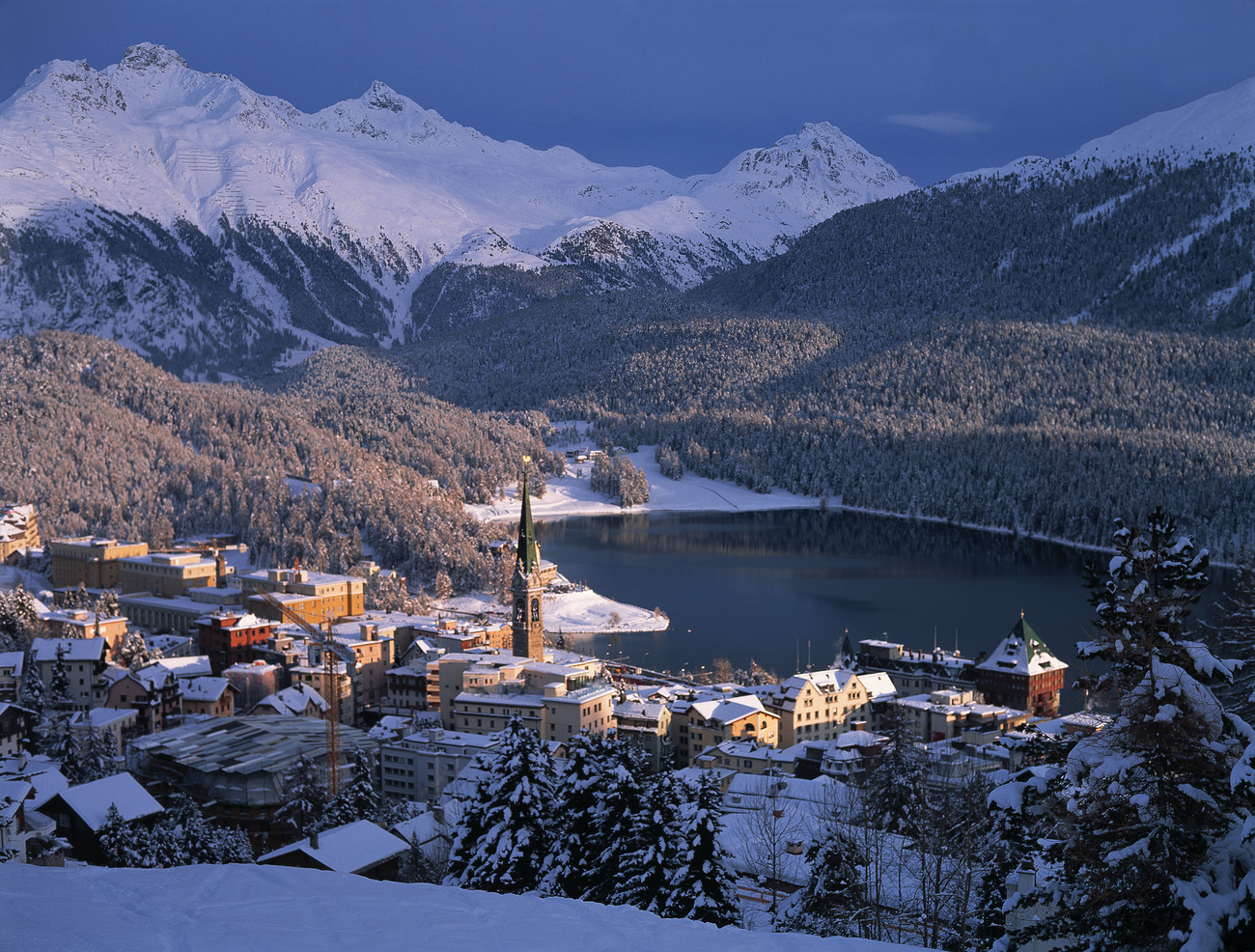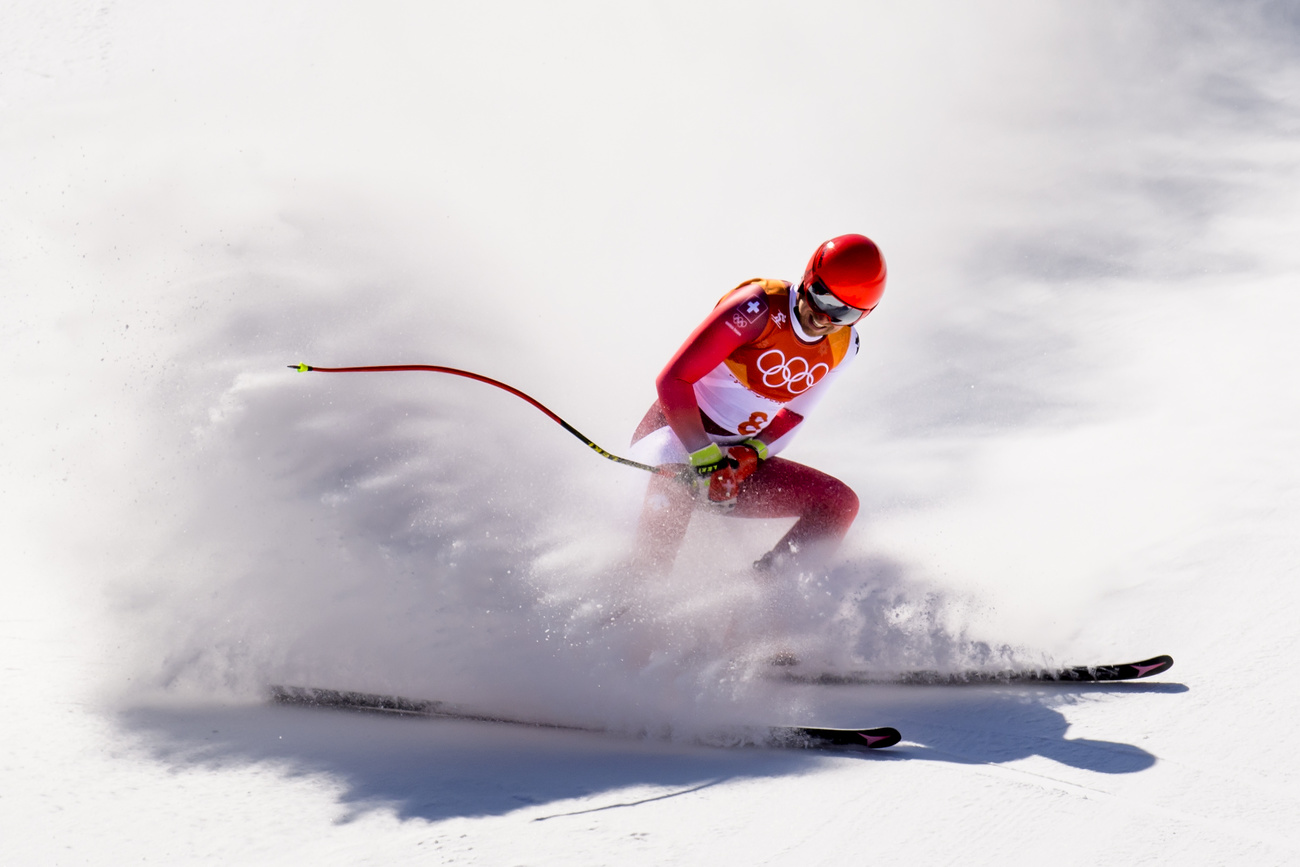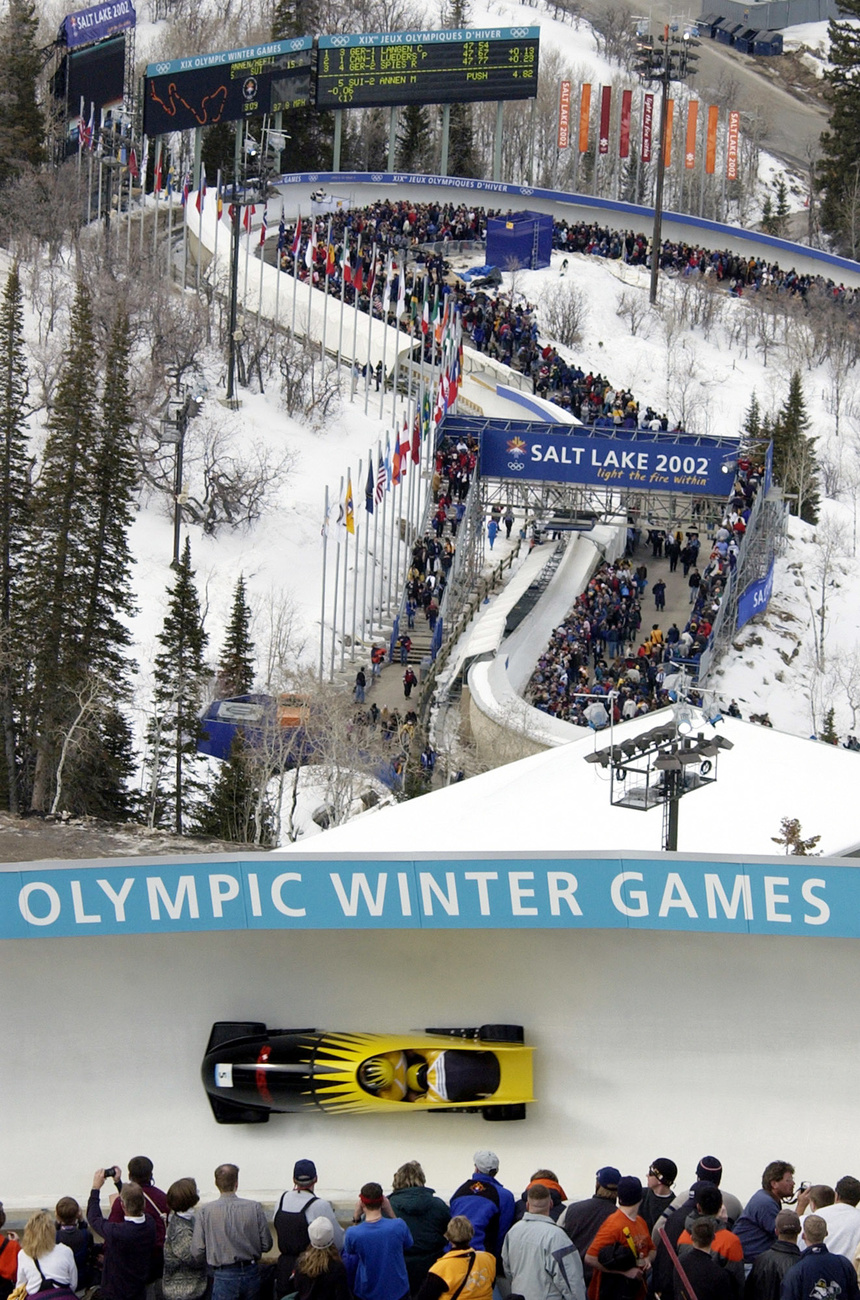Dashed dreams: Swiss take stock of failed bid to host Winter Olympics

Switzerland, the land of winter sports, has been passed over as host of the Winter Games in 2030 and 2034. Could federalism or waning political influence be to blame for its failed candidacy?
The International Olympic Committee, with its headquarters overlooking Lake Geneva, handed Switzerland a double loss on Wednesday. The sports body dismissed its bids for both the 2030 and 2034 Winter Games and retained France and Salt Lake City in the United States, respectively, as the sole remaining candidates. The final decision on hosting, scheduled for next summer, will be a mere formality.
The decision has sparked disappointment and rumination in Switzerland. Soon after the announcement, former sports minister Adolf Ogi was on the airwaves expressing shock.
“It’s incomprehensible,” he toldExternal link Swiss public radio RTS. “Yes, it’s a slap for Switzerland. I’m really disappointed, as in my view we had everything to organise these Games.”
+ Swiss bid to host Winter Olympics falls at first hurdle
Minister in charge of sports for canton Valais, Frédéric Favre, a supporter of the Swiss bid, said “disappointment is the overriding feeling”. But he also pointed to a silver lining: despite rejecting its bids, the IOC is inviting the small Alpine country to a “privileged dialogue” on hosting in 2038.
The Swiss sports minister, Viola Amherd, focusedExternal link exclusively on this bright side, telling public television SRF she was pleased about the possibility of hosting – in 14 years’ time.
“When you see how big an Olympic candidacy and the event is, I’m not unhappy that we’re being given a little bit more time,” she said.
Lack of political guarantees
The decision to bid for the 2030 and 2034 Winter Games was relatively recent. Swiss Olympic began a feasibility study into hosting the Games in March and agreed just five days ago to officially launch the two bids.
“Those six months would have been better spent getting the support in principle of the government and parliament, which is lacking in comparison to the Swedish and French bids,” Jean-Loup Chappelet, a former IOC executive and an emeritus professor at the University of Lausanne, commentedExternal link in the pages of Le Temps.
This gap in political support was a clear weakness in the Swiss bids, according to the Tages-Anzeiger. The French candidacy, it said, had the full backing of President Emmanuel Macron, who had pledged state financial support.
In Switzerland, on the other hand, the IOC was facing the spectre of a referendum, central to the country’s democratic process but representing “a great risk” for the international body, the newspaper added.
Several Swiss attempts to host the Winter Olympics in recent times – such as a joint bid by St Moritz and Davos for 2022 and canton Valais for 2026 – have failed at the ballot box.

Christophe Dubi, executive director of Olympic Games at the IOC, dismissed the notion that the Lausanne-based organisation feared rejection by the Swiss people this time around. A survey done during the feasibility phase showed 67% of the population were in favour of the 2030 Games, he pointed out in an interviewExternal link with RTS.
But he also conceded that in Switzerland’s case, it would be necessary to ensure political support for the Games from the municipalities, cantons and federal government. Support from these various levels of authority is necessary to ensure security and good travel links during the Games, according to Chappelet.
“Federalism is simply not compatible with the IOC’s quest for security,” concluded the dailies 24 Heures and Tribune de Genève.
Losing the bids could even be seen as a sign that Switzerland’s political influence is waning, said the former minister Ogi, who was perplexed that France was getting to host another Olympics so soon after next year’s Summer Games in Paris. It’s a thought shared by the two newspapers, which wrote: “If Switzerland has lost […] it’s likely also because, in an environment where lobbying is essential, it no longer has influential agents within the Olympic community”. France, they claimed, had a few heavyweights in the sports world.
One ‘sustainable’ Games among many
Switzerland, France and Sweden (whose bid was also dismissed on Wednesday) had all announced they would host the world’s “first sustainable Olympics”. Since the 2014 Sochi Winter Games – the costliest in history at $55 billion (CHF48 billion) spentExternal link – the IOC has insisted on the need to use existing venues and avoid new construction that can stretch spending.

More
Can Switzerland really host a ‘sustainable’ Winter Olympic Games?
The Swiss planned to spread out the competitions across the country, so athletes could make use of existing infrastructure – only one of the 14 Olympic sports would need a new venue. But the idea seems to have backfired.
“When we look at the Swiss bid, we see a very large spread of infrastructure between Lausanne and Graubünden consisting of some ten Olympic villages,” said Dubi of the IOC. The Committee, he added, would prefer a more compact plan where athletes can congregate and that allows “a true Olympic spirit”. The Swiss could also optimise plans for financing, the IOC said on Wednesday.

The Games in France would be concentrated in the Auvergne-Rhône-Alpes and Provence-Alpes-Côte d’Azur regions and benefit from strong state and private-sector support, the IOC said. Salt Lake City, meanwhile, plans to use existing infrastructure still in mint condition from the 2002 Games, and so would need to make no significant financial investments.
Back to the drawing board
The morning after the bad news, the IOC was striking an upbeat note.
Losing out on the 2030 and 2034 Games was “not a failure”, said Dubi. “We have an amazing capacity to welcome the Winter Olympics in Switzerland, but the bid needs to be refined. And the decision is just that: it’s giving the possibility to rework this bid together for 2038.”
The IOC executive insisted Switzerland was the only one being considered for these distant Olympics – for now, anyway.
“We will talk to no one else for 2038,” said Dubi, “but only until 2027”. That is the year when the country will need to present its revised bid.
If the Committee can be taken at its word and Switzerland puts in a more solid proposal in four years’ time, then it could be a shoo-in to host the Games in 2038 – exactly 90 years after hosting its last Winter Olympics, in St Moritz in 1948.
Edited by Virginie Mangin

In compliance with the JTI standards
More: SWI swissinfo.ch certified by the Journalism Trust Initiative









You can find an overview of ongoing debates with our journalists here . Please join us!
If you want to start a conversation about a topic raised in this article or want to report factual errors, email us at english@swissinfo.ch.